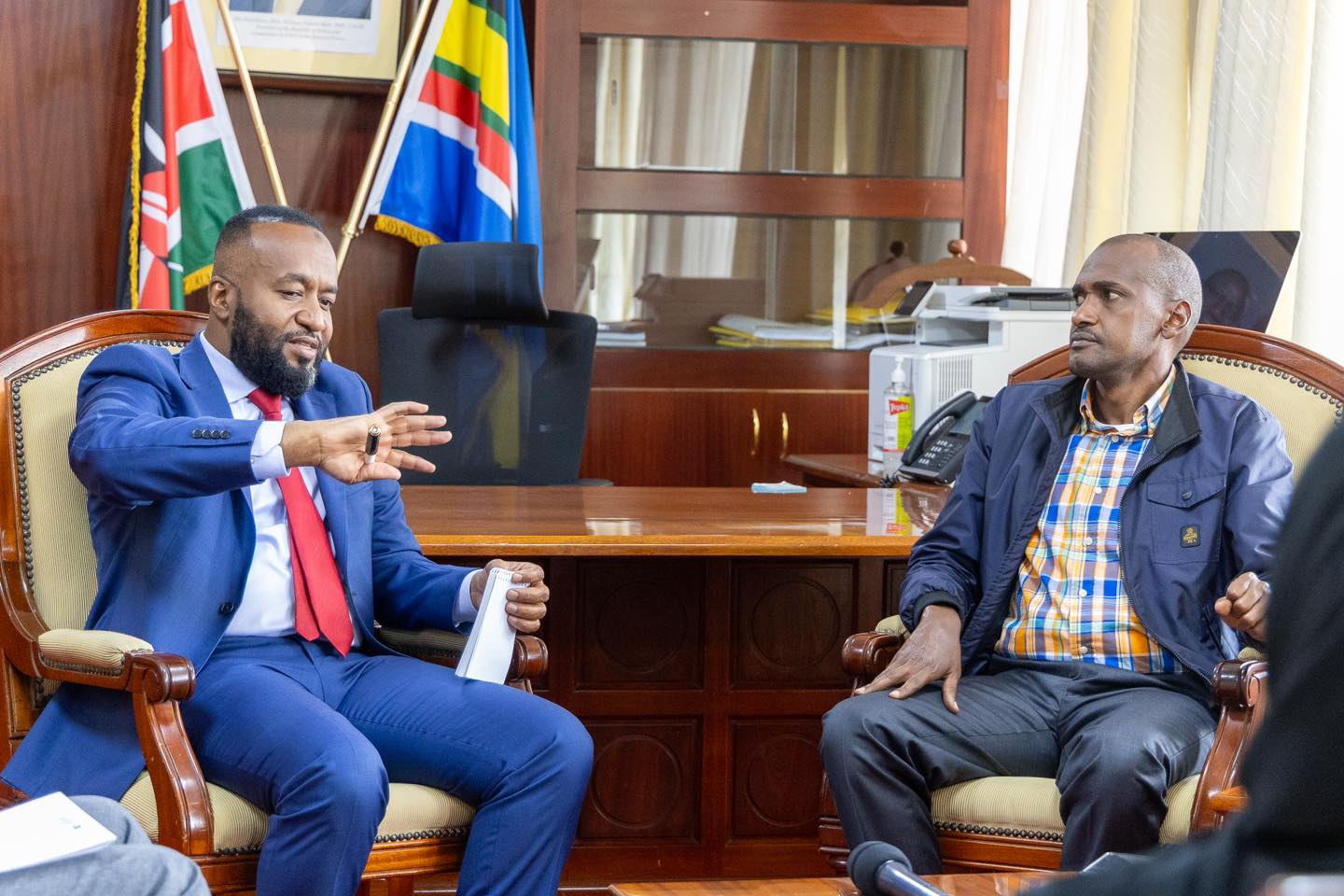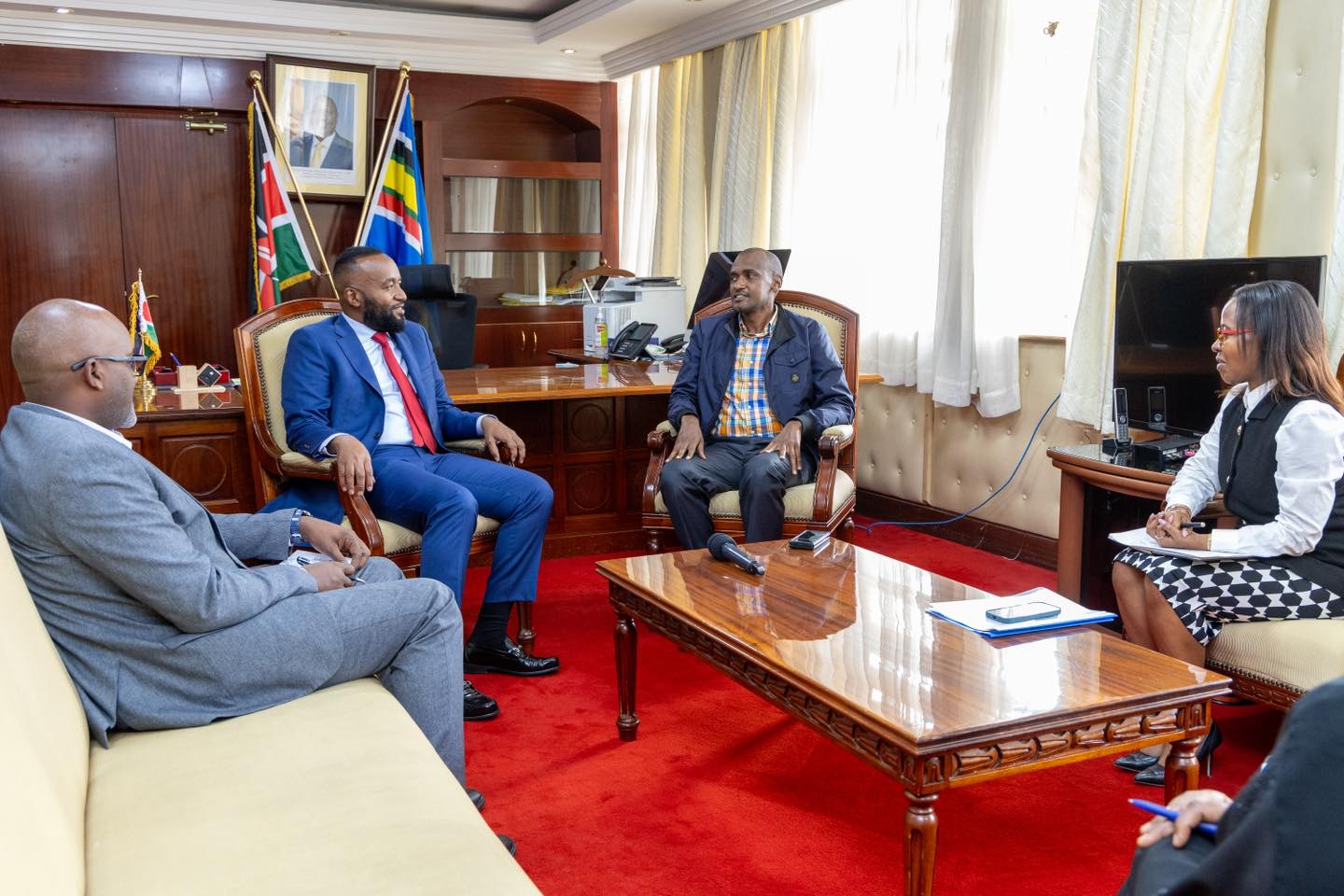
 Mining and Blue Economy CS Hassan Joho during a meeting with Ugandan Minister for Fisheries and Aquaculture Hon. Frank Tumwebaze at his office in Nairobi on July 31, 2025. /HASSAN JOHO
Mining and Blue Economy CS Hassan Joho during a meeting with Ugandan Minister for Fisheries and Aquaculture Hon. Frank Tumwebaze at his office in Nairobi on July 31, 2025. /HASSAN JOHO
Kenya’s Cabinet Secretary for Mining and the Blue Economy, Hassan Joho, has called for the swift implementation of a joint fishing licence framework with Uganda.
His remarks come after a memorandum of understanding was signed by both countries to resolve the lingering Migingo Island disputes.
Joho said the agreement would protect fishermen who operate around Migingo while reducing cross-border arrests.
“Going forward, issues of creating a licence framework that will enable Kenyan fisherfolk … to have ease in accessing the Ugandan waters in a manner that is clear and supported by some kind of a framework,” he said.
"This framework will facilitate access to fishing grounds for licensed fishermen from both Kenya and Uganda while curbing illegal fishing activities and promoting sustainable fishing practices. It will also enable recognition of licensed fishermen and enhance rescue operations," Joho said.
He spoke shortly after hosting Uganda’s Minister of Fisheries, Frank Tumwebaze, in Nairobi. Tumwebaze added that Uganda will support transit arrangements for fish transport across its territory.
“We will also look at issues of fishing transit… to ensure that illegitimate people who are doing illegal fishing on our side do not use the cover of people from this side,” he said.
The meeting was attended by Principal Secretaries Ms. Betsy Njagi (Blue Economy and Fisheries) and Harry Kimtai (Mining).
 Mining and Blue Economy CS Hassan Joho during a meeting with Ugandan Minister for Fisheries and Aquaculture Hon. Frank Tumwebaze and other dignitaries at his office in Nairobi on July 31, 2025. /HASSAN JOHO
Mining and Blue Economy CS Hassan Joho during a meeting with Ugandan Minister for Fisheries and Aquaculture Hon. Frank Tumwebaze and other dignitaries at his office in Nairobi on July 31, 2025. /HASSAN JOHO
The joint licence would allow verified fishermen from Kenya and Uganda to fish in agreed lake zones without fear of arrest.
Both ministers believe this measure will de-escalate tensions and make operations more orderly on Lake Victoria.
For years, fishermen around Migingo Island—a tiny, crowded rock outcropping of less than half an acre—have faced arrests and seizures.
The island, claimed by both Kenya and Uganda at different times, became a source of diplomatic friction in 2009 when Ugandan police raised their flag and required licences from Kenyan fishers.
The lack of uniform regulation has been blamed for repeated conflict.
Fishermen caught drifting across invisible aquatic borders often see their gear confiscated or face detention. Local media reports frequently highlight fishers held for weeks.
The new joint framework intends to harmonise enforcement, monitoring, and data sharing among the three nations sharing Lake Victoria—Kenya, Uganda, and Tanzania.
Officials hope this will better protect fish stocks, promote sustainability, and reduce illegal fishing.
The talks come as leaders consider a broader agreement that would include Tanzania, though the current deal covers Kenya and Uganda.
Negotiations aim to establish a jointly recognised licence and uniform rules. Such coordination would also support East African regional integration efforts.
Joho emphasised that the new system will bring clarity to fishermen and reduce diplomatic frictions. He urged rapid rollout and transparent coordination.
If implemented effectively, this joint fishing licence could offer long-term relief to communities around Lake Victoria.
It promises to shield fishermen from arbitrary arrests and create a more predictable regulatory landscape—ushering in a new era of cooperative resource management.
















